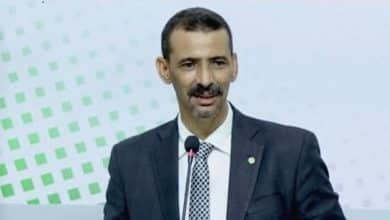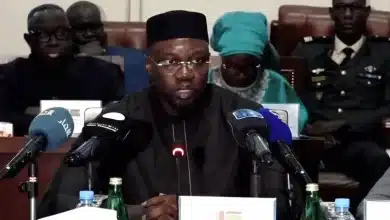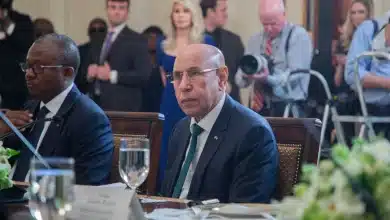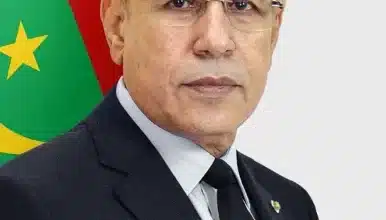Mauritania: the ethnic issue explained.
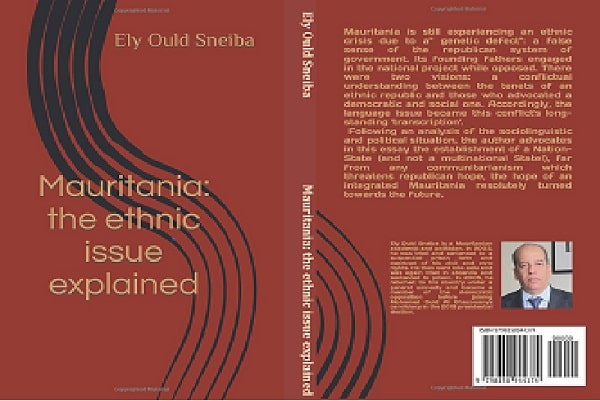
Mauritania: the ethnic issue explained.
Introduction
Mauritanians still remember the vibrant call of their first president, Moktar Ould Daddah, who, in 1957, during a first preparatory assembly of the national project, said: ‘’Let us make the Mauritanian Homeland together’’.
Those Mauritanians who had read the memoirs written by President Moktar when he retired must have noted that he concluded with an epilogue in which he asked himself and them the following question: ‘’What kind of people do we want to be?’’
His question is still relevant and still pending.
However, before that, another self-evident question: Why did he choose to speak of ‘homeland’ instead of ‘nation’ when the two notions are not interchangeable?
According to Larousse, ‘homeland’ means ‘country where one was born or to which one belongs as a citizen, and for which one has an emotional attachment’. Therefore, that is what existed on the eve of independence.
As for the concept of ‘nation’, beyond how jurists may define it, other scholarly points of view consider that only linguistics ‘provides the elements owing to which one determines the most constant character that distinguishes one nation from another’.2 This distinguishing attribute is language, ‘since all other differences produced by a diversity of race, government, usage, manners, religion and culture either do not exist or offer imperceptible nuances’.
National unity was usually around a common language. The Mauritanian nation had this vision to achieve, and President Moktar bore the challenge in mind. The simple reality is that the Mauritanian people have no sense of national identity: One country and four ethnic groups who do not share a common language!
For example, on 2 August 2019, after 60 years of cohabitation, the Mauritanians attended the inauguration ceremony of Mohamed Ould Cheikh Al Ghazouany, their new president elected by direct universal suffrage on 22 June of the same year.
Diallo Mamadou Bathia, the president of the Constitutional Court, had the honour of chairing the swearing-in ceremony; consequently, he had to deliver a speech which, according to tradition, was supposed to be legal and apolitical. However, President Diallo broke the rules and made a speech with solid political content and patriotic overtones.
In front of an audience of national officials and a few foreign guests of honour, including Senegalese President Macky Sall, he described, among other national realities, that his country is biracial, composed of Arab Mauritanians and Black Mauritanians. Diallo also pointed out that his fellow citizens from the Senegal River Valley, like himself, express themselves in French, contrary to the letter of the constitution, and that, in comparison, his Arab Mauritanian executives do so in Arabic, as did the incoming president during his inauguration speech.
That brings us to the national issue of cohesion between Mauritanians and the crisis it has given birth to since the first steps of the nascent state. 1966, 1986, 1987, and 1989 are all important dates in the register of disturbances that have marked Mauritanian national life, proof of a deep malaise that never ceases to permeate the black nationalists, and at their head, the Fula-Tekruri ethnicists organised within the Forces for the Liberation of Africans in Mauritania (FLAM). All of them regret, for reasons of identity, having made Mauritania with the Arab Mauritanians, not without arousing « anti-racist racism » among a specific Arab Mauritanian segment, which, in turn, expresses remorse about the fusion of Bilad Chinguitt and Futa into a single state.
Yes, the Arab Mauritanians had the choice of making a country, in one form or another, with the Moroccans, their blood brothers who wanted it very much, or making it with the Black Mauritanians who wanted it only a little or not at all. They ended up associating with the Black African minority, who refused to be « assimilated ».
Mauritania is still experiencing spasms of birth because of this choice. The Black Mauritanian nationalists, on the other hand, speak of forced Arabisation. Their agitation revolves around the oppressed Black Mauritanians in the land of West African apartheid, where their ancestors had built two great empires: the Empire of Ghana and the Empire of Mali.
In this essay, we will contradict FLAM’s propaganda and explain the genesis of the Mauritanian interracial issue, a difficult cohabitation as old as the state, worsened by Black Mauritanian inward-looking attitudes and whose recovery is still uncertain despite the urgency of such an imperative.
Ely Ould Sneiba

